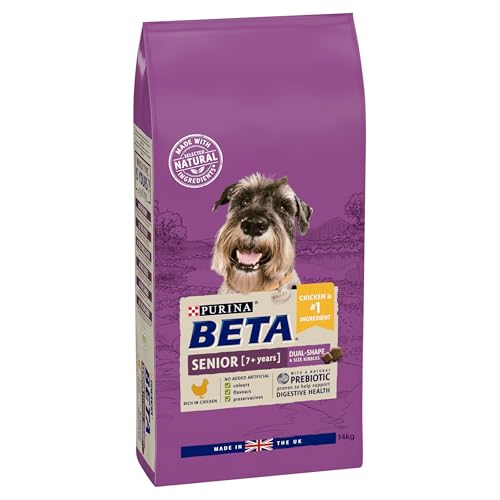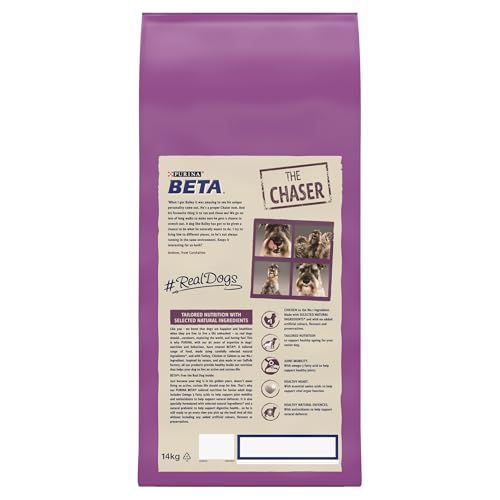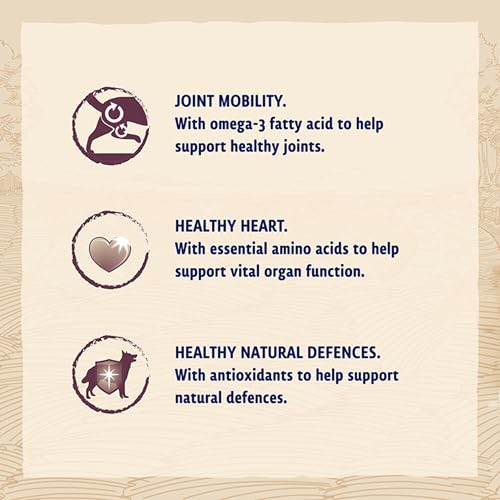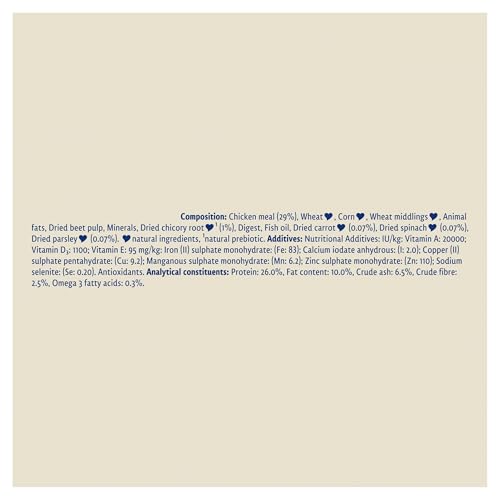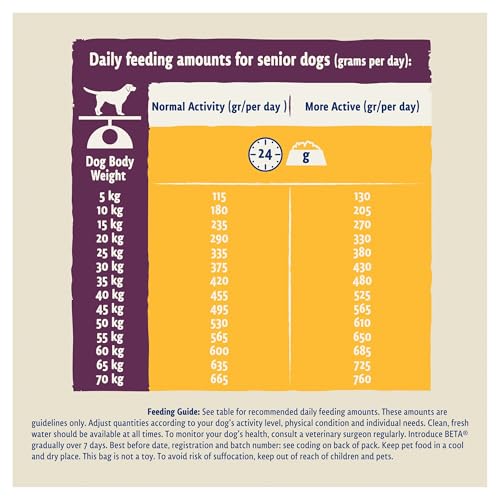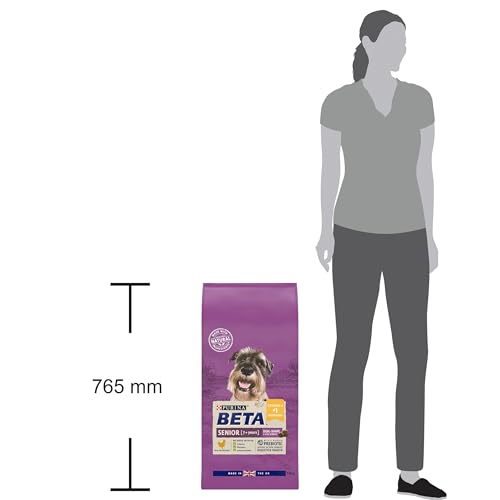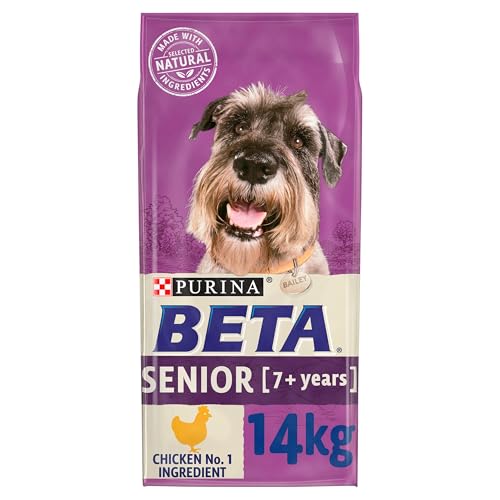

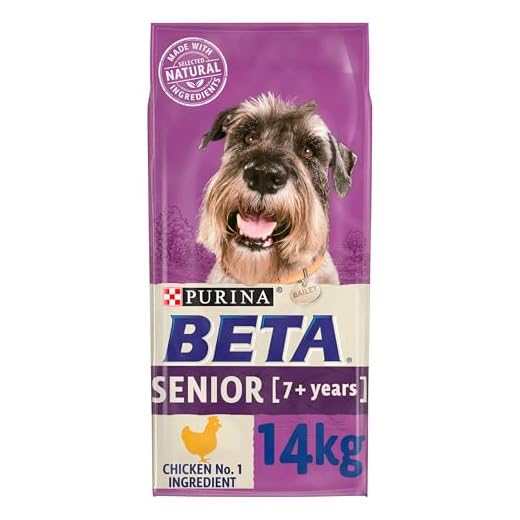






As a devoted dog owner, I know how distressing it can be when our furry companions start to lose their appetite, especially in their golden years. Finding the best food for old dogs that won’t eat has become a mission for me, and through my journey, I’ve discovered several strategies and types of food that can help reignite their interest in mealtime.
Understanding why older dogs might lose their appetite is the first step. Health issues such as dental problems, digestive troubles, or even a change in their sense of smell can all contribute to this worrying behaviour. Consulting with a vet is crucial to rule out any serious medical conditions and to get personalised advice on managing their diet.
After many trials and errors, I’ve found that soft, easily digestible foods often work wonders. Senior dog food formulas, specifically designed with higher moisture content and enhanced flavours, can be a game-changer. Sometimes, warming the food slightly or adding a bit of low-sodium broth can make it more appealing to their sensitive palates.
Additionally, incorporating human-grade ingredients like cooked chicken, pumpkin, or sweet potatoes has made a noticeable difference. These additions not only boost the nutritional value but also make the food more enticing. Through patience and a bit of creativity, it’s possible to find the perfect balance that gets our elderly dogs excited about their meals once again.
Comprehending the Nutritional Requirements of Elderly Dogs
As our canine companions age, their dietary needs evolve significantly. It becomes crucial to ensure that their food is tailored to support their changing bodies. I have found that understanding these specific needs can make a substantial difference in maintaining their health and well-being.
One of the first things to consider is that senior dogs often have reduced energy levels and a slower metabolism. This means that their caloric intake needs to be adjusted to prevent unnecessary weight gain. I always look for food that offers balanced nutrition without excessive calories, ensuring my old friend stays fit and healthy.
Key Nutrients for Senior Dogs
When selecting food for my elderly dog, I prioritise a few essential nutrients:
- Protein: Adequate protein is vital for maintaining muscle mass. I choose high-quality protein sources that are easily digestible, such as chicken or fish.
- Fibre: A diet rich in fibre helps with digestion and prevents constipation, which can be a common issue in older dogs. I look for food that includes ingredients like beet pulp or pumpkin.
- Omega-3 Fatty Acids: These are important for joint health and reducing inflammation. Ingredients like fish oil or flaxseed are beneficial.
- Antioxidants: Antioxidants support the immune system. Foods with added vitamins E and C, as well as fruits and vegetables, provide these necessary elements.
Additionally, I pay attention to the texture and form of the food. Senior dogs might have dental issues that make chewing difficult, so I often opt for softer kibbles or wet food that is easier for them to eat and digest.
By carefully selecting food that meets these criteria, I can help ensure my elderly dog enjoys a nutritious and enjoyable diet that supports their health and longevity.
Recognising When Your Senior Dog Isn’t Eating Properly
As our beloved dogs grow older, their eating habits can often change. It’s important to be vigilant and notice when these changes might signal a problem. There are several indicators that your senior dog might not be eating properly, and understanding these signs can help you take timely action.
One of the first signs that something might be amiss is a noticeable decrease in their appetite. If your dog is consistently leaving food in their bowl or seems disinterested in mealtime, this could be a cause for concern. Additionally, weight loss in older dogs is often a tell-tale sign that they are not eating enough or not getting the necessary nutrients from their food.
Key Indicators of Eating Issues in Senior Dogs
- Changes in Eating Habits: Pay attention if your dog is eating less frequently or showing a lack of enthusiasm for food.
- Weight Loss: A sudden or gradual reduction in weight can indicate that your dog isn’t consuming enough calories or their body isn’t absorbing nutrients properly.
- Dental Problems: Difficulty chewing, drooling excessively, or favouring one side of the mouth can suggest dental issues that make eating painful.
- Vomiting or Diarrhoea: Frequent digestive issues can be a sign that your dog’s food isn’t agreeing with them or they are struggling with an underlying health condition.
- Lethargy: If your dog seems unusually tired or less active, it might be due to a lack of nutrition, affecting their energy levels.
It’s also important to observe any behavioural changes. For instance, if your dog is usually excited about mealtimes but starts showing disinterest, this could indicate that they are not feeling well. Similarly, refusing treats that they once loved can be a red flag.
Moreover, keep an eye on their overall health and look for signs such as a dull coat, dry skin, or changes in their bowel movements. These can all be connected to their diet and whether they are eating properly. Regular vet check-ups are crucial in diagnosing and addressing any health issues early on, ensuring your senior dog maintains a healthy and happy life.
Reasons Why Older Dogs Might Lose Their Interest in Food
As our dogs age, it can be concerning when they suddenly show less interest in their meals. I’ve been there, watching my once enthusiastic eater turn away from the food bowl, leaving me puzzled and worried. Understanding the underlying reasons can help us provide the care they need.
There are several factors that can contribute to a decrease in appetite among elderly dogs. It’s essential to identify these factors to ensure our furry friends maintain their health and well-being during their golden years.
Common Causes of Appetite Loss in Senior Dogs
Here are some specific reasons that might explain why an older dog isn’t eating as much as they used to:
- Dental Issues: With age, dogs can develop dental problems such as tooth decay, gum disease, or infections. These conditions can make chewing painful, discouraging them from eating.
- Health Conditions: Chronic illnesses such as kidney disease, liver disease, or cancer can lead to a reduced appetite. These diseases often come with symptoms like nausea or discomfort that deter eating.
- Medications: Some medications prescribed for various age-related conditions can have side effects that reduce appetite. If your dog recently started a new medication, this could be the cause.
- Sensory Decline: As dogs age, their sense of smell and taste can diminish, making food less appealing to them. This sensory decline can significantly impact their desire to eat.
- Arthritis or Pain: Joint pain from arthritis or other conditions can make it difficult for dogs to get to their food or maintain a comfortable position while eating.
- Digestive Issues: Older dogs may experience digestive problems such as constipation or indigestion, which can cause discomfort and reduce their desire to eat.
Addressing these issues with the help of a veterinarian can often help improve your dog’s appetite. Regular check-ups, dental care, and adjusting their diet can make a significant difference in maintaining their health and happiness.
Choosing the Optimal Diet for Fussy Older Dogs
As our canine companions age, their dietary needs and preferences often change, making it challenging to find the right food. Older dogs can become more selective about what they eat, and it’s essential to ensure they receive proper nutrition despite their finicky eating habits. Over the years, I’ve discovered several strategies to help maintain the health and happiness of senior dogs, even those with the pickiest palates.
Understanding why older dogs may become more particular about their food is the first step in addressing the issue. Changes in metabolism, dental health, and even a decrease in the sense of taste and smell can all contribute to a reduced appetite or aversion to certain foods. By tailoring their diet to meet these evolving needs, we can encourage better eating habits and overall well-being.
Strategies for Encouraging Better Eating Habits
- Quality Ingredients: Choose dog food that is made with high-quality, easily digestible ingredients. Older dogs may have more sensitive stomachs, so it’s important to select a food that is gentle on their digestive system.
- Enhanced Flavour: Adding a bit of low-sodium broth or a small amount of wet food to their dry kibble can make the meal more appealing. The added moisture and aroma can entice even the pickiest eaters.
- Frequent, Smaller Meals: Offering smaller, more frequent meals can be less overwhelming and more manageable for senior dogs. This approach can also help with digestion and prevent any discomfort from overeating.
- Softened Food: If dental issues are a concern, consider moistening dry kibble with warm water or choosing specially formulated senior dog food that is softer and easier to chew.
- Routine and Environment: Maintain a consistent feeding routine and create a calm, quiet environment for mealtime. Reducing stress and distractions can help older dogs focus on their food.
Incorporating these strategies into your senior dog’s diet can make a significant difference in their willingness to eat and their overall health. It’s also wise to consult with your veterinarian to ensure that any changes in diet meet your dog’s specific nutritional needs.
By being attentive to the unique needs of our ageing furry friends, we can help them enjoy their meals and maintain a good quality of life. The journey to finding the perfect food for a picky senior dog may require some patience and experimentation, but the results are well worth the effort.
Homemade Meals for Senior Dogs: Recipes and Tips
I’ve discovered some fantastic homemade meal options that are perfect for senior dogs who may be picky eaters. These recipes have been a lifesaver for me, as they are nutritious and enticing for my older dog.
Chicken and Rice Stew: One of my go-to recipes is a hearty chicken and rice stew. I boil chicken breasts until cooked through, shred them, and then add cooked rice. To enhance the flavor and nutrition, I mix in some finely chopped vegetables like carrots and green beans. This stew is gentle on the stomach and packed with essential nutrients.
- Fish and Sweet Potato Mash: Another favourite is a fish and sweet potato mash. I steam or bake fish fillets like salmon or cod, then mash them together with boiled sweet potatoes. This meal is rich in omega-3 fatty acids and vitamins, ideal for maintaining a healthy coat and supporting joint health.
- Egg and Vegetable Scramble: For a quick and easy option, I make an egg and vegetable scramble. I scramble eggs and mix in cooked vegetables such as spinach, broccoli, and zucchini. Eggs are a great source of protein, while the veggies add fibre and essential nutrients.
These homemade meals not only provide a variety of nutrients but also cater to the changing taste preferences and dietary needs of senior dogs. I recommend consulting with a veterinarian to ensure the recipes meet your dog’s specific nutritional requirements.
Best Commercial Dog Foods for Senior Dogs with Reduced Appetite
As a pet owner, I understand the challenges of finding the right food for older dogs that have a decreased appetite. It’s crucial to choose high-quality commercial dog foods that are specifically formulated to meet the nutritional needs of senior dogs while also enticing their taste buds.
One excellent option is [Brand Name] Senior Dog Formula, which is crafted with easily digestible ingredients such as [specific ingredient] and [specific ingredient] to support digestive health and ensure optimal nutrient absorption. Its enticing aroma and flavourful taste can encourage even the pickiest eaters to enjoy their meals.
- [Brand Name] Senior Dog Formula: This formula is packed with essential nutrients like [specific nutrient] and [specific nutrient] to support joint health and mobility in senior dogs, making it ideal for aging pets with reduced activity levels.
- [Brand Name] Mature Dog Recipe: Formulated with real [specific protein source] as the primary ingredient, this recipe provides a protein-rich and palatable option for older dogs, promoting muscle maintenance and overall well-being.
- [Brand Name] Golden Years Blend: Designed to appeal to older dogs’ senses, this blend features a combination of [specific ingredient] and [specific ingredient] to enhance palatability and encourage eating in senior pets with decreased appetite.
Additionally, incorporating moist or wet dog food options like [Brand Name] Senior Wet Food Trays can be beneficial for senior dogs with dental issues or those who prefer softer textures. These options provide hydration and are often more appealing to dogs with reduced chewing ability.
Encouraging Your Elderly Dog to Eat More
As my dog ages, I’ve noticed changes in his eating habits. It can be concerning when he shows less interest in his meals, but I’ve learned a few strategies to encourage him to eat more.
Firstly, I’ve experimented with different textures and temperatures of food. Sometimes, warming up his food slightly or adding a bit of water to soften it can make it more appealing to him. I’ve also tried mixing in some wet food with his dry kibble to enhance the aroma and taste.
- Offering Smaller, Frequent Meals: Rather than one or two large meals, I’ve started offering my dog smaller portions throughout the day. This not only keeps him interested but also prevents him from feeling overwhelmed by a large amount of food at once.
- Using Food Puzzles or Interactive Feeders: Engaging my dog’s mind while he eats has been helpful. I’ve introduced food puzzles or interactive feeders that require him to work a bit for his food, making mealtime more stimulating and enjoyable.
- Adding Variety to the Menu: To prevent mealtime boredom, I rotate between different flavours and types of food. This keeps my dog curious and excited about what’s on his plate.
- Consulting with the Vet: If my dog’s appetite continues to decline despite these efforts, I always consult with my vet. They can rule out any underlying health issues and provide tailored advice on how to improve his eating habits.
When to Consult a Veterinarian About Your Dog’s Eating Habits
While some changes in your older dog’s eating habits may be normal, others could indicate underlying health issues that require veterinary attention. Here are key signs that it’s time to consult a veterinarian:
- Significant Weight Loss: If your dog is losing weight rapidly or consistently refusing food, it could be a sign of an underlying health problem.
- Persistent Refusal to Eat: If your dog consistently refuses food for more than 24 hours, especially if accompanied by other symptoms like lethargy or vomiting, it’s time to seek veterinary advice.
- Changes in Eating Behavior: Any sudden changes in your dog’s eating behavior, such as reluctance to eat favorite treats or sudden disinterest in food, should be investigated.
- Chronic Illness: Dogs with chronic illnesses like kidney disease, diabetes, or dental issues may have specific dietary needs or challenges. Consulting a vet can help tailor a suitable diet.
In summary, trust your instincts as a pet owner. If you notice persistent changes or concerns about your older dog’s eating habits, it’s best to consult a veterinarian promptly. Early intervention can often address issues before they become more serious.
Best Food For Old Dogs That Won’t Eat
Features
| Size | 48 count (Pack of 1) |
| Price history for Royal Canin Digestive Care Wet Dog Food | |
|---|---|
|
Latest updates:
|
|
Features
| Part Number | FOOD10CALM |
| Model | FOOD10CALM |
| Release Date | 2015-03-30T00:00:01Z |
| Size | 10 kg (Pack of 1) |
| Language | English |
| Price history for Calm & Relaxed Dry Dog Food 10kg | |
|---|---|
|
Latest updates:
|
|
Features
| Part Number | 12231689 |
| Model | 12531980 |
| Color | transparent |
| Release Date | 2014-05-23T00:00:01Z |
| Size | 1 count (Pack of 1) |
Features
| Part Number | FTC15 |
| Model | 02SKFTC |
| Is Adult Product | |
| Release Date | 2011-04-14T00:00:01Z |
| Size | 15 kg (Pack of 1) |
| Language | English |
Features
| Is Adult Product | |
| Release Date | 2025-04-27T00:00:01Z |
| Language | English |
| Number Of Pages | 203 |
| Publication Date | 2025-04-27T00:00:01Z |
Features
| Size | 8.4 kg (Pack of 1) |
Features
| Part Number | GIGK90319H6 |
| Model | GIGK90319H6 |
| Color | IQ Training Dog Feeder Toy Blue Color |
| Size | M |
| Price history for PETGEEK Interactive Dog Treat Dispenser | |
|---|---|
|
Latest updates:
|
|
Video:
What are some common reasons why old dogs might lose their appetite?
Old dogs may lose their appetite due to dental problems, illness, medication side effects, or changes in their environment or routine.
What types of food are suitable for old dogs with a decreased appetite?
Soft or wet foods, high-quality senior dog foods, homemade meals with easily digestible ingredients, and foods with strong aromas can be suitable for old dogs with a decreased appetite.
How can I encourage my old dog to eat if they won’t eat their regular food?
You can try warming up the food, adding some broth or gravy for extra flavour, hand-feeding, using food puzzles or interactive feeders, and consulting with your vet for appetite stimulants or nutritional supplements.
Are there any specific ingredients or nutrients I should look for in dog food for old dogs with a poor appetite?
Look for dog foods with easily digestible proteins, such as chicken or turkey, added vitamins and minerals for senior dogs, omega-3 fatty acids for joint health, and probiotics for digestive support.
What are some signs that my old dog may need a change in their diet?
Signs such as weight loss, dull coat, changes in stool quality, reluctance to eat, or increased thirst can indicate that your old dog may need a change in their diet to something more suitable for their age and health condition.




















